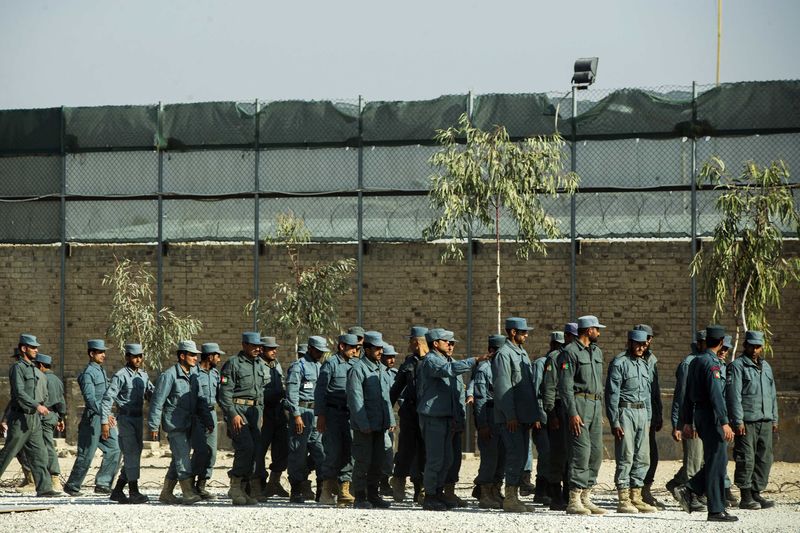WASHINGTON (Thomson Reuters Foundation) - The United States is spending more than $300 million a year on Afghan police officer salaries despite a significant risk that the funds are being wasted and abused, a U.S. government watchdog said on Monday.
In an audit of Afghan National Police (ANP) salaries, the special inspector general for Afghanistan reconstruction (SIGAR), said police rosters were inflated, staff were overpaid and payments were made to more employees than were authorized.
It said the organizations responsible for verifying police data - the United Nations Development Programme (UNDP) and the multi-national Combined Security Transition Command-Afghanistan (CSTC-A) - had not properly scrutinised figures provided by Afghanistan's interior ministry (MOI).
"Officials confirmed that over the past year they accepted, without question, all personnel totals provided by the MOI," SIGAR said.
Worries about lack of accountability have long dogged the trust fund established by the UNDP in 2002 to administer the payment of salaries of more than 145,000 Afghan police officers.
The United States has provided 38 percent of the $3.6 billion that the international community has contributed to the fund since 2002, according to SIGAR. Overall, the United States has poured more than $100 billion into reconstruction in Afghanistan.
The country is ranked one of the most corrupt in the world, and donors are worried about lack of progress in fighting graft.
FRAUD AND ABUSE
The audit said ANP identification cards were the main method to help protect against fraud and abuse, but found they were not being used properly, and that there were almost twice as many cards in circulation as active police personnel.
Despite nine years of development, an electronic human resources system, critical for ensuring the proper personnel were being paid and given the correct amount, had not been successfully implemented, SIGAR said.
One in five ANP personnel were at risk of not receiving their full salaries because they were paid in cash by an MOI appointed agent, a process the watchdog said "lacks documentation and accountability".
CSTC-A reported that corrupt practices within the agent system of salary payments could siphon off as much as 50 percent of a policeman's earnings, it added.
SIGAR said Washington would have increasingly limited oversight of ANP data collection processes as U.S. and coalition forces continued to draw down and transfer security responsibility to the Afghan government.
"Unless the MOI develops the capability to ensure and verify the accuracy of ANP personnel and payroll data, there is a significant risk that a large portion of ... U.S. government funding for ANP salaries will be wasted or abused," SIGAR said.
Among its recommendations, the audit called for controls to monitor police attendance and a fully operational electronic payroll system by Jan. 2016.
In a written response to SIGAR, The U.S. Forces-Afghanistan said the CSTC-A was taking action to implement its recommendations and that its "resolve to hold the MOI to a higher level of accountability is clear".

UNDP officials were not immediately available for comment.
(Writing By Kieran Guilbert; Editing by Ros Russell) 2015-01-12T050634Z_1_LYNXMPEB0B06H_RTROPTP_1_AFGHANISTAN-MILITARY.JPG urn:newsml:onlinereport.com:20150112:nRTROPT20150112050634LYNXMPEB0B06H Afghan National police officers stand in formation during a visit by U.S. Brigadier General Christopher Bentley to an Afghan National police installation in the Nangarhar province of Afghanistan OLGBTOPNEWS Reuters UK Online Report Top News 20150112T050634+0000 20150112T050634+0000